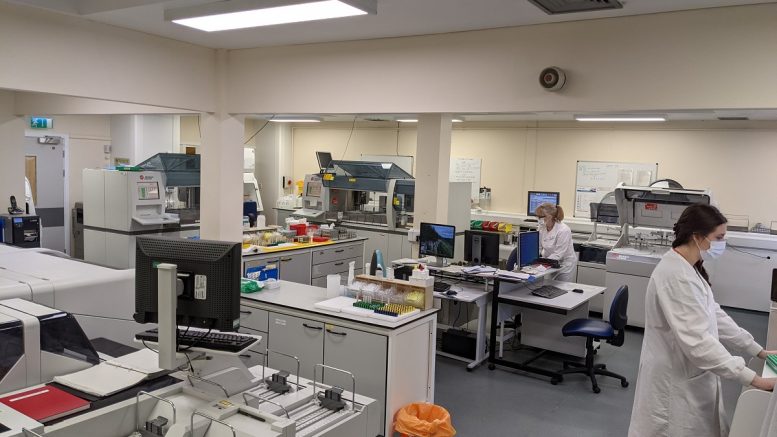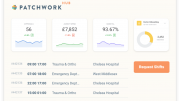Pathologists at one of England’s most innovative trusts, Northumbria Healthcare, have chosen the CliniSys laboratory information system (LIMS) as part of a digital strategy to support its drive to continually improve patient care.
The pathology team at Northumbria Healthcare NHS Foundation Trust has decided to replace their legacy LIMS with WinPath Enterprise, hosted by CliniSys from its UK data centre.
Dr Stewart Pattman, Consultant Chemical Pathologist and clinical lead for digital pathology transformation, emphasised that the plan was not just to swap one LIMS for another.
“As a pathology department, we are delighted to have the opportunity to select CliniSys WinPath Enterprise and to design a digital system that supports pathology testing and results for our patients and clinical teams over the next decade and beyond,” he said.
“As we get into the implementation, we are determined to keep an open mind about the processes that we have at the moment, and to look for opportunities to improve them.
“This investment also forms part of a wider digital strategy for the trust, so we will be looking for opportunities to integrate our digital systems with others to create clinical pathways in which diagnostics support safe and effective patient management and decision making.”
Northumbria Healthcare NHS Foundation Trust is one of the few NHS trusts to have been rated ‘outstanding’ twice by the Care Quality Commission regulator.
It is known for taking an innovative approach to care delivery for its population of 500,000 people, who live across a huge geographical area across Northumberland and North Tyneside.
Hannah Cox, LIMS Programme Manager, said, “Northumbria Healthcare has a way of doing things that we call ‘The Northumbria Way’ that is underpinned by a digital strategy.
“We are determined to be part of that bigger digital movement and to play our part in that bigger transformation. We want to think about how the laboratory can support the hospitals and community colleagues to keep patients moving through the system.”
In 2015, it opened the UK’s first, specialist emergency care hospital to provide consultant-led emergency and specialist care seven-days per week.
Two years later, it became one of the first ‘accountable care organisation’ vanguards to pioneer ideas that are now being taken forward by integrated care systems to plan services for populations and break down traditional barriers between health and care.
To support these developments, the trust has invested heavily in digital technology and in recent years, has deployed an e-observations, bed management and alerting system to replace paper charts and improve patient flow.
Dr Pattman said he wanted to explore how the laboratory can provide more specific advice based on clinical requests and ‘add on’ appropriate tests depending on patterns of results reported to help their clinical colleagues solve clinical problems; and how the results of tests for acute problems such as sepsis and acute kidney injury can be fed back even more quickly to clinical areas, so staff can act on them.





